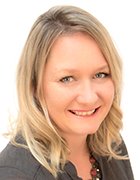Former WTO chief leads debate on future of European spectrum
The future of the UHF spectrum band will be discussed by industry leaders over the next six months before presenting proposals to the European Commission
The European Commission has called on the telecoms industry to bring forward proposals on how to tackle the increasing pressure on spectrum across the continent.
An “informal high level group” of broadcasters, network operators, mobile companies and technology associations has been formed to discuss how to make the most efficient use of the UHF spectrum band – covering frequencies between 470 and 790MHz – to ensure citizens get the best broadcast and internet coverage they can from the limited resource.
It will be chaired by the former director general of the World Trade Organisation and former European Commissioner for Trade, Pascal Lamy, and include representatives from the UK, namely James Purnell, executive director of strategy and digital at the BBC, and Philipp Humm, Vodafone’s regional CEO of Europe. The director general of the GSMA, Anne Bouverot will also be involved in the talks.
“Europe needs to use spectrum more effectively if we want to benefit from the latest TV and internet developments,” said Neelie Kroes, the digital commissioner at the EC.
More on spectrum
- MoD to sell military spectrum for 4G
- Digital TV spectrum clear for 4G
- BT - the next OTT provider thanks to 4G
- Ofcom hikes spectrum licence prices
“That's why we need a new consensus on how to use broadcast spectrum, and that’s why I made the coordination of broadband spectrum a central feature of our effort to build a telecoms single market.”
The group will focus on four areas:
- What will next-generation (terrestrial) provision/reception of audiovisual content (including linear TV) look like?
- How do we secure the public interest and consumer benefits while facilitating market transformation?
- What are the strategic elements of spectrum use in the UHF band in light of the first challenge? What would the regulatory role of the EU be in coordinating developments?
- What are the financial implications for a next-generation terrestrial platform for broadcasting and internet use?
Pascal admitted it would not be an easy task getting companies from broadcast and broadband to agree, but believed the group had an optimistic outlook for forming its plans.
“I expect these discussions to be quite challenging,” he said. “Nobody will get everything they want, but I am confident that, based on an open discussion and a willingness to engage at the strategic level, we can deliver a coherent vision for Europe.”
The group will be given six months to come up with the best ways to use spectrum and are expected to report back to the EC by July 2014.










